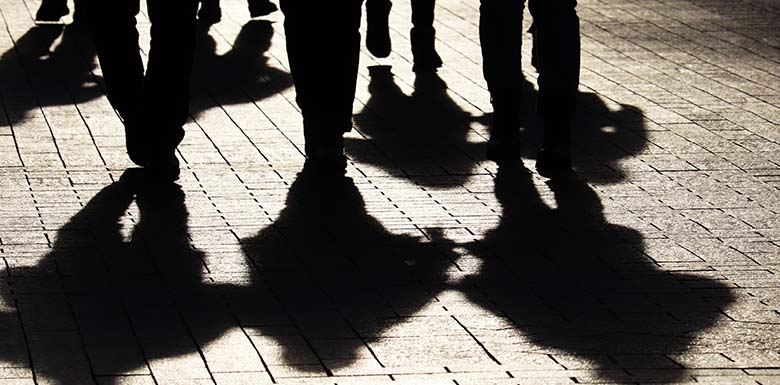
When criminal organizations or enterprises commit certain offenses, they can face charges under the Racketeer Influenced and Corrupt Organizations Act (RICO). RICO charges can carry some of the most severe consequences of all criminal charges.
Suppose you face allegations under the RICO Act. In that case, you must understand the extent of the charges you are facing, your potential penalties, and which defenses are most likely to produce a favorable outcome. With that in mind, check out this complete guide to RICO charges.
What is a RICO Charge?
RICO charges reduce the number of crimes committed by criminal enterprises and organizations. Generally, for a RICO charge to apply, the prosecutor must prove that there has been a pattern of illegal activity, including at least two RICO crimes over the last ten years.
The crimes do not need to be two separate offenses but rather two individual criminal acts. An example may be two instances of embezzlement, bribery, and extortion.
Common Types of RICO Charges
Several types of crimes could be charged under the RICO Act. Examples of such offenses include the following:
- Arson
- Bribery
- Counterfeiting
- Dealing in obscene matter
- Dealing controlled substances or chemicals
- Embezzlement
- Extortion
- Fraud
- Gambling
- Kidnapping
- Money laundering
- Murder
- Obstruction of justice
- Terrorism
- Theft
- Trafficking controlled substances or chemicals
- Transporting stolen goods
Generally, RICO charges will apply when prosecutors believe a pattern of criminal offenses connects with the mafia, a criminal organization, or an enterprise. Criminal organizations and enterprises will include two or more individuals who work together to commit specific criminal offenses.
Those involved do not necessarily need to have an existing relationship. As long as they are connected to the enterprise or organization, they can still face charges under the RICO Act.
What Are the Penalties for RICO Charges?
The consequences you face if convicted of a RICO offense vary depending on the criminal offense you are charged with, your cooperation with law enforcement, your criminal record, and other factors.
However, RICO charges often carry more severe penalties than misdemeanor or felony charges. Generally, you can expect to spend up to 20 years in prison and pay fines as high as $25,000. However, if the offense in question has a maximum sentence of more than 20 years, additional penalties may apply, including life imprisonment.
You Could Face Federal Penalties
The RICO Act applies to state and federal laws, so you can expect to be prosecuted federally if you are charged with a RICO offense. This means you could face time in a federal prison, which could take you further away from your family and friends.
Additional Consequences for RICO Charges
Additionally, you can expect your assets and property to be seized, fines to be imposed, restitution to be ordered, community service hours to be set, and your professional reputation to be destroyed.
How to Defend Against Racketeering Charges
You must take action to clear your name when you have been charged with racketeering or another type of RICO offense. In some instances, the prosecutor may be willing to allow you to enter a plea agreement if you agree to further aid them in their investigation.
Other times, your attorney must carefully scrutinize the details of your case to determine how to approach your defense. Suppose your constitutional rights were violated because law enforcement did not read your Miranda rights, conducted an illegal search, or violated other procedural rules and regulations. In that case, the charges against you could be dismissed altogether.
Other potential defenses that could be used to help clear your name of the RICO charges against you include:
- Lack of sufficient evidence
- Lack of intent to commit a crime
- Mistaken identity
- You are not a part of a criminal organization or enterprise
- There is no pattern of criminal activities
Famous RICO Cases
RICO crimes involve individuals who participate in criminal organizations and enterprises. For this reason, there are certain types of RICO cases that have become widely known. For example, you may have heard in the headlines about murder-for-hire plots, weapons trafficking, human trafficking, or the transportation of stolen goods.
However, many other types of RICO charges can also grab the public’s attention. Most notably, cases of extortion and bribery of public officials are often considered RICO violations. This can include making bribes to judges, law enforcement officials, elected officials, and other trusted parties.
If you are facing RICO charges, the last thing you want is for your case to make headlines. The more scrutiny on your case, the more difficult it will be to get it heard by a group of impartial jurors.
Contact a Racketeering Lawyer for Help Today
If you have been accused of committing a RICO offense, you must retain an experienced criminal defender if you hope to clear your name of the charges against you.
Find out what’s next for your defense when you reach out to a reputable RICO attorney at Harrison & Hart for a confidential case review. You can reach us through our secure contact form or by calling (505) 295-3261 to start working on your defense as soon as today.
